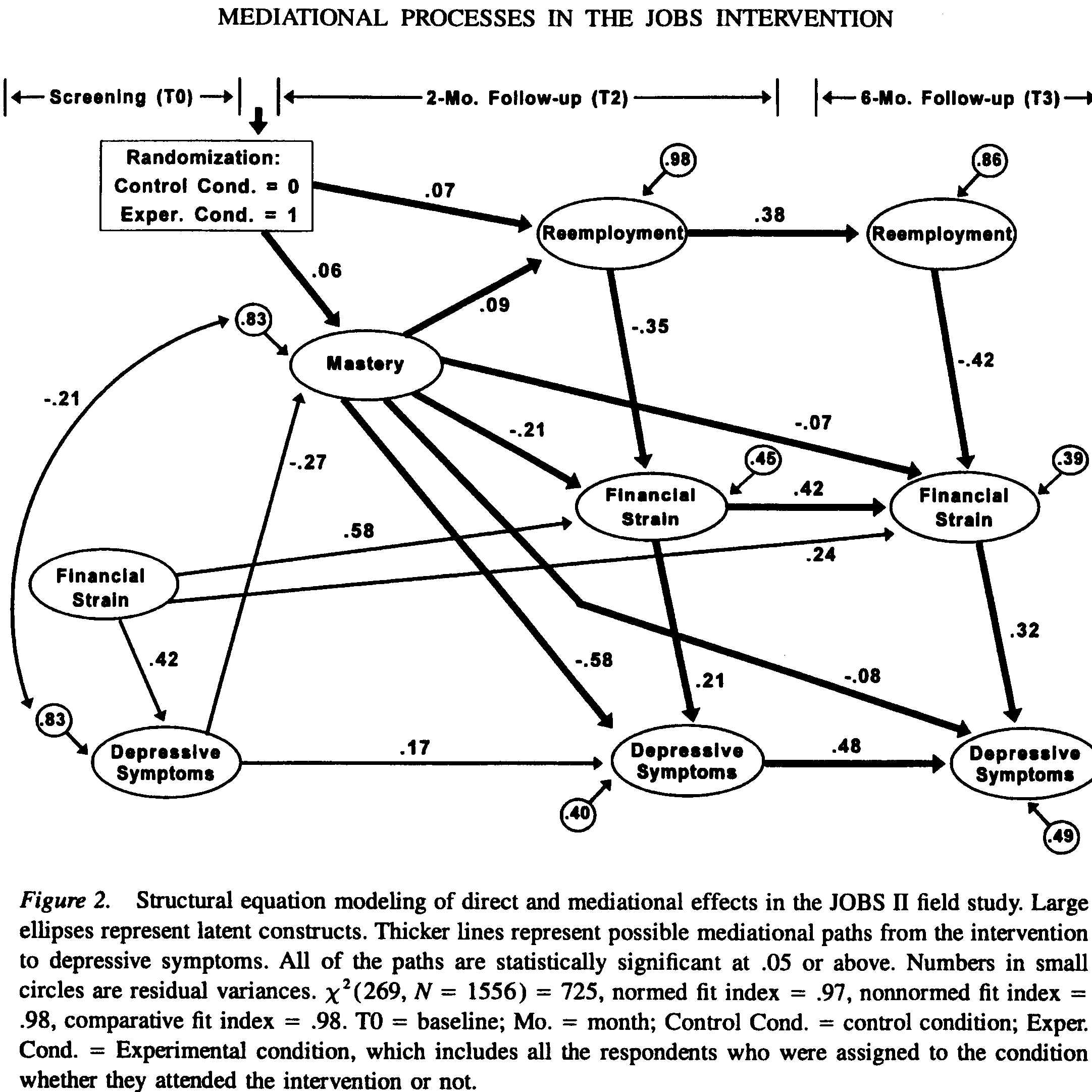|
Earlier analyses of the JOBS II intervention for unemployed job seekers demonstrated that the intervention facilitated reemployment, reduced depressive symptoms, and improved role and emotional functioning (Vinokur, Price, & Schul, 1995). The intervention was designed to (1) provide recently unemployed job seekers with effective job-search skills and strategies, (2) increase their job-search self efficacy and sense of mastery and, (3) inoculate them against setbacks that may occur during the job search process. Thus, the JOBS intervention included various components to achieve these objectives. The intervention format consisted of five 4-hour meetings in small groups (12-18 participants) led by male-female trainer teams. The meetings were guided by active teaching and learning processes in a socially supportive environment and included group problem solving processes, modeling, role playing, and skill training (Price & Vinokur, 1995). The intervention was tested using a randomized experimental field study with a control group of respondents that received booklets with the same basic job search strategies that was imparted in the intervention. Based on results from the earlier JOBS I study regarding the moderating effects of risk for depression (Price, van Ryn, & Vinokur, 1992), JOBS II tested this moderation prospectively. Thus the design included the classification of respondents at screening into low and high risk categories for manifesting elevated depressive symptoms and possible depression episode in the next several months. The study reported here focused on the analyses of the mediational processes of the active ingredients targeted by the intervention. Structural equation modeling analysis demonstrated that an enhanced sense of mastery had mediating effects on reemployment, financial strain and reduction in depressive symptoms (Vinokur & Schul, 1997). The mediation effect from mastery to reemployment was stronger for those who actually participated in the intervention and for the high risk group. Another active ingredient, inoculation against setbacks, was shown to protect those who suffered the setback of losing a job after temporarily regaining one. The inoculation protected them from experiencing the high level of depressive symptoms that was typical of their counterparts in the control group.
|
|
 |
|
|
Price, R.H., van Ryn, M., & Vinokur, A.D. (1992). Impact of preventive job search intervention on the likelihood of depression among the unemployed. Journal of Health and Social Behavior, 33, 158-167. Price, R.H., & Vinokur, A.D. (1995). Supporting Career Transitions in time of organizational downsizing: The Michigan JOBS Program. In M. London (Ed.). Employees, careers, and job creation: Developing growth-oriented human resource strategies and programs (pp. 191-209). San Francisco: Jossey-Bass Publishers. Vinokur, A.D., Price, R.H. & Schul, Y. (1995). Impact of the JOBS intervention on unemployed workers varying in risk for depression. American Journal of Community Psychology, 23, 39-74. Vinokur, A.D., & Schul, Y. (1997). Mastery and Inoculation Against Setbacks as Active Ingredients in the JOBS Intervention for the Unemployed. Journal of Consulting and Clinical Psychology, 65, 867-877. |